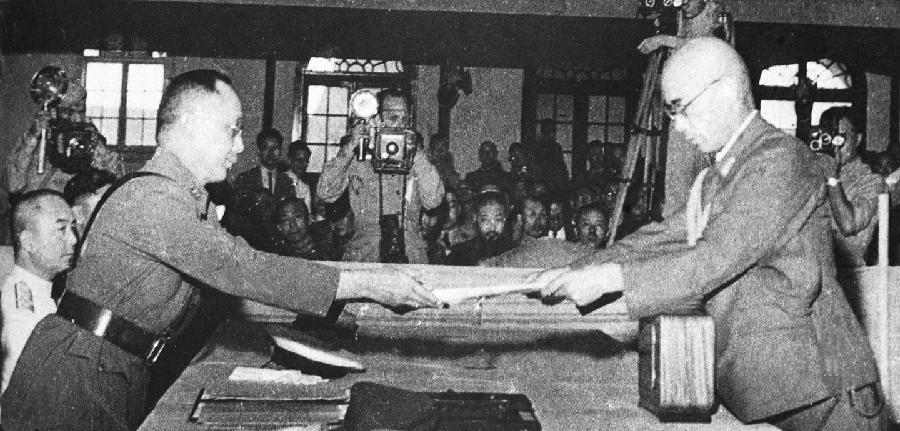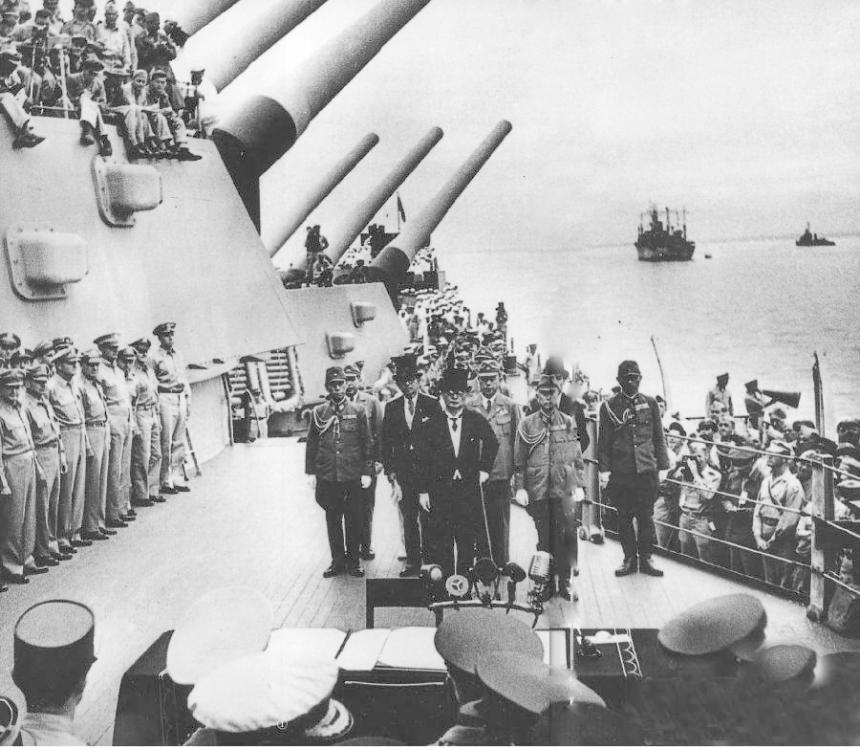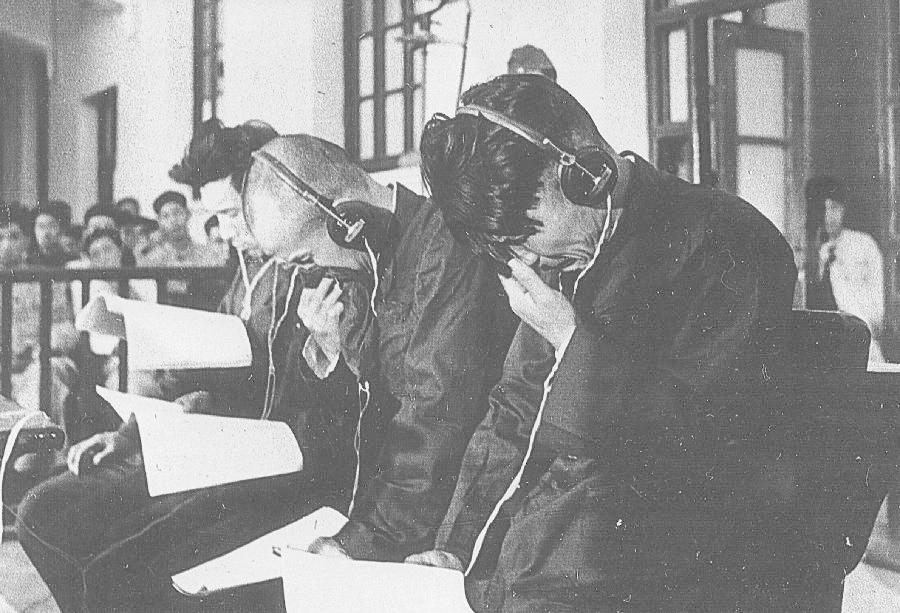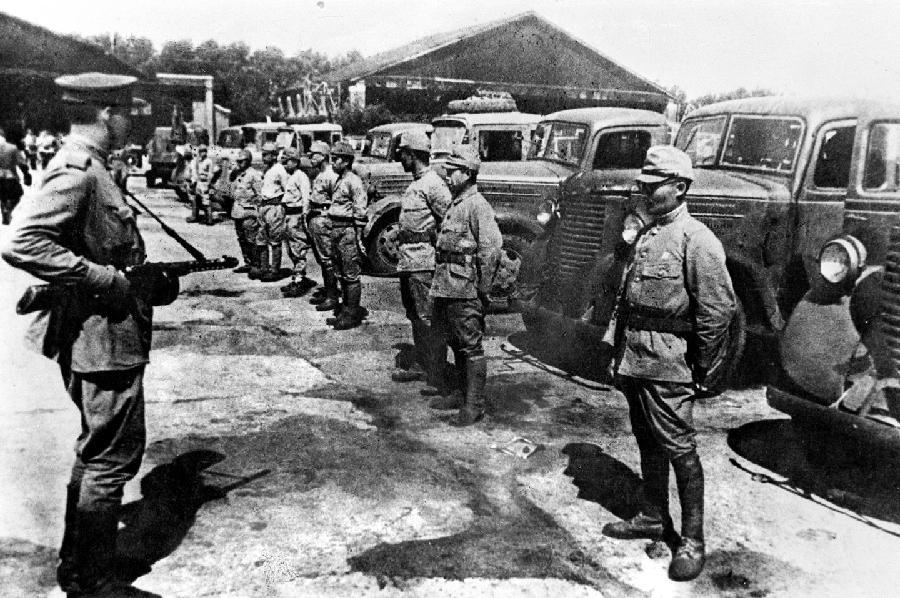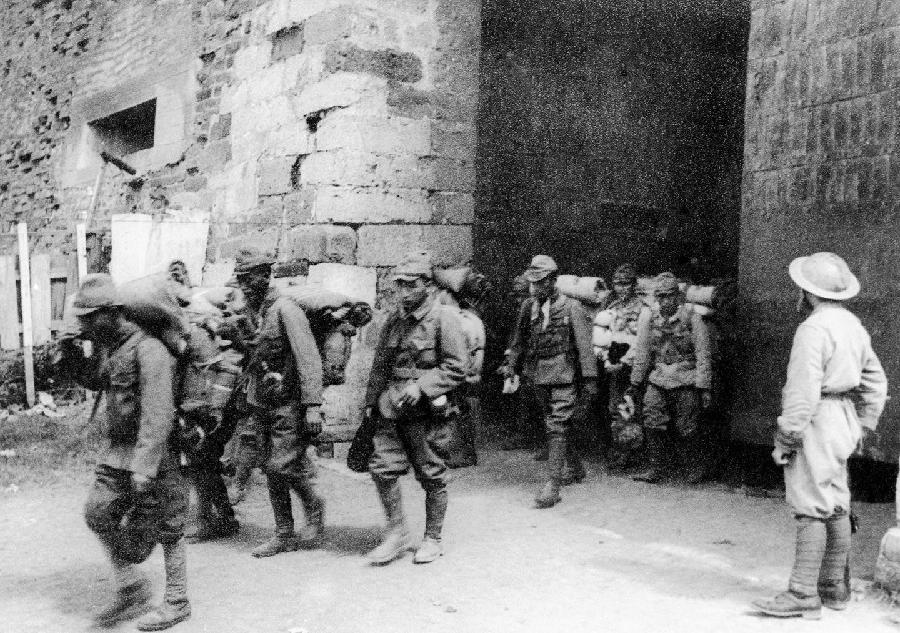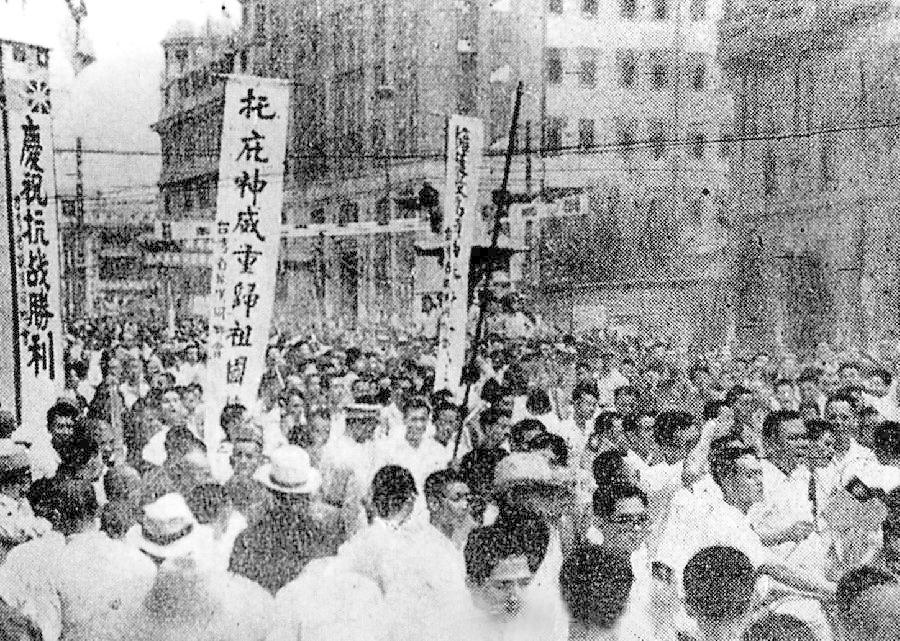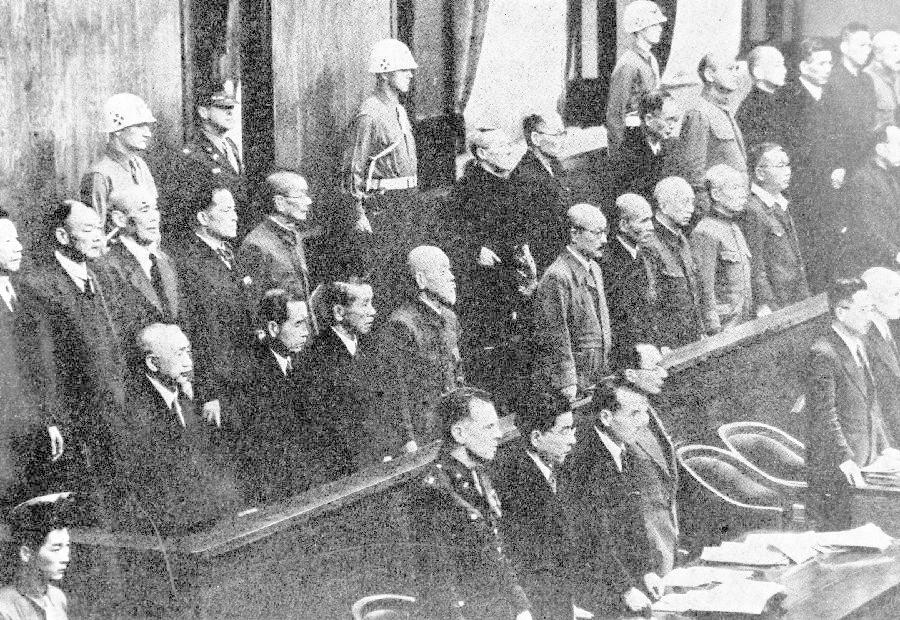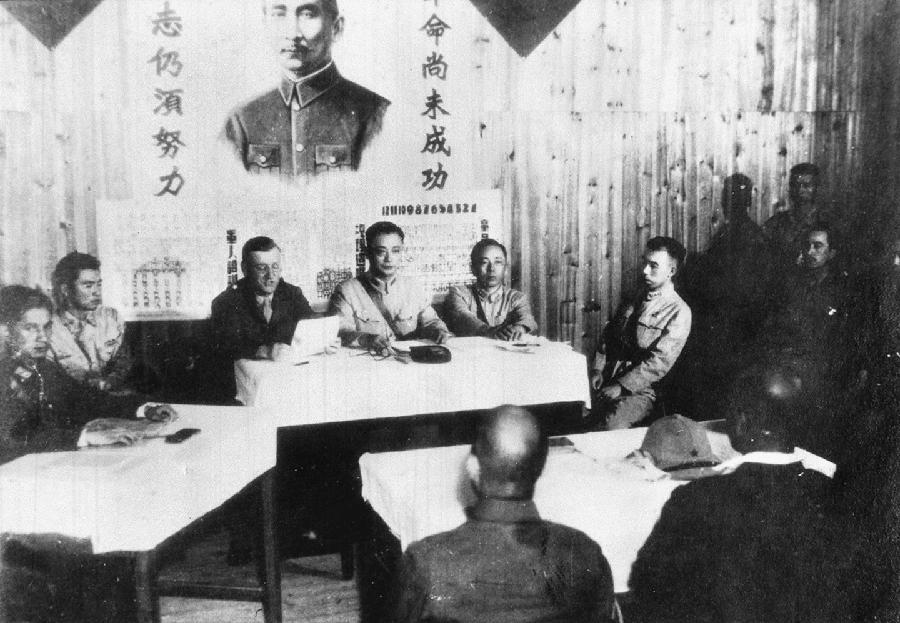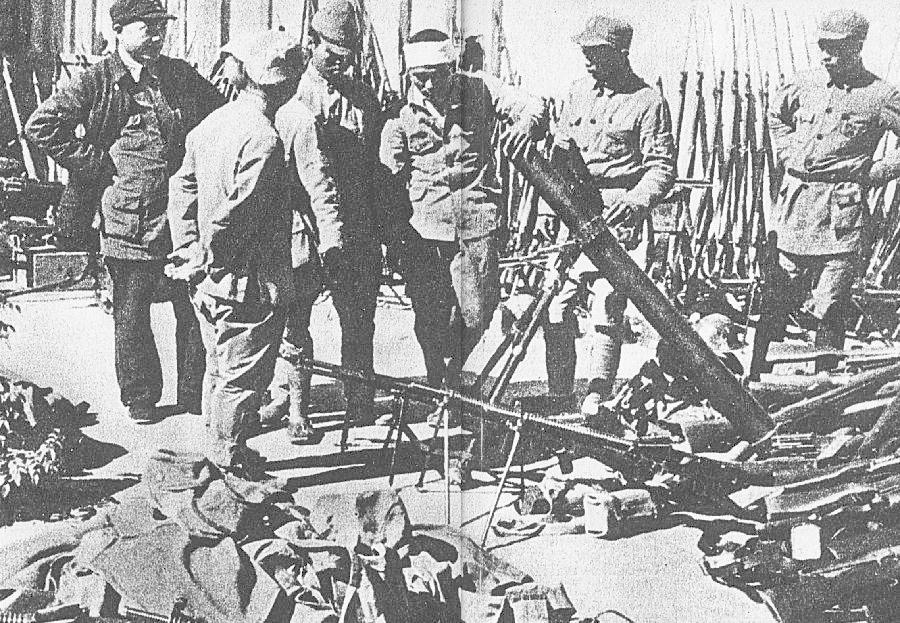
File photo shows surrender of Japanese invaders. On Aug. 15, 1945, Japanese Emperor Hirohito delivered a recorded radio address to the nation, announcing the surrender of Japan in World War II, one day after Japan declared its acceptance of the provisions of the Potsdam Proclamation jointly issued by China, the United States and Britain on July 26, 1945, with the Soviet Union joining later. The proclamation, which radicated Japan's crimes of aggression during WWII and determined the principles under which Japan is required to behave after the war, is an important document for laying the foundation for the post-war world order and safeguarding peace in Asia and the rest of the world. More than 35 million Chinese were killed or injured in the war of resistance against Japanese aggression, accounting for one-third of the total casualties of all countries during WWII, according to incomplete official statistics. Admitting its historical aggression and reflecting on the responsibility for war is a precondition for Japan to reconcile with its Asian neighboring countries that suffered under its military campaigns in WWII.






